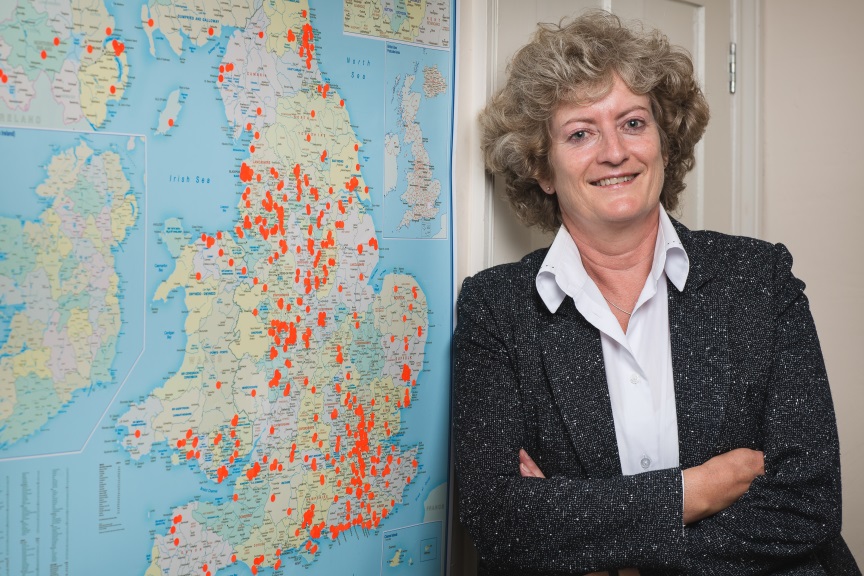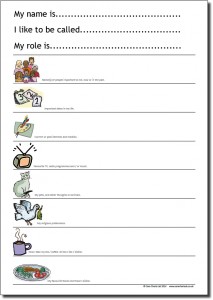[updated May 2015]
I was inspired to pull together this list of resources when attending a WhoseShoes event in Kent and heard about Kent Libraries’ wonderful list of reminiscence boxes and associated training.
A number of councils and other organisations offer a variety of dementia-appropriate books, games, activities and reminiscence or rummage boxes via libraries and other locations, for the use of care homes and individuals.
The list below just scratches the surface; if you are aware of services that we have not included please send details to feedback@carechartsuk.co.uk.
Most importantly, encourage them to list their services online! The internet is a vital source of information for people living with dementia and their families as well as care homes and organisations / individuals offering activities and events for people with dementia. If Google can’t find it, it’s going to be more difficult for people to get to hear about it.
Other sources of information
The International Federation of Library Associations and Institutions (IFLA), the international body representing the interests of library and information services and their users, have published guidelines giving practical recommendations on how to provide mental stimulate with books and other library materials. The publication also includes suggestions for library staff on how to tailor such services to the target population.
Other sources where these services may be listed are: Alzheimers Society… Dementia Action Alliance… Dementia Challengers… Dementia Web
National Organisations
The Reader Organisation is a charitable organisation which runs Reader Groups in Care Homes and other locations.
Listening books is a charity providing an online and postal audiobook library service and also offers organisations their own mini library of 200 audiobooks to lend out to patients or residents or to play in communal activity areas.
Books on prescription is led by the Reading Agency who worked with dementia healthcare experts, people with dementia and carer groups to select a list of 25 titles that provide support and advice for people with dementia and their carers. The titles can be recommended by health professionals and are available for anyone to borrow free-of-charge from their public library.
Regional organisations
Bolton offers free bulk loans of books for care and nursing homes on application to any library.
Bury has an impressive list of dementia-related titles.
Exeter Library, one of Devon’s Libraries, stocks a wide range of books offering advice and information on dementia.
Glasgow Museums has a wide range of themed kits available. They cover topics such as childhood and tenement life. Kits contain original objects, photographs and other material
Kent Libraries not only ensure they have a good stock of appropriate books, but also make available Reminiscence Boxes to care homes and people living with dementia, and provide training for staff on how best to use them as well. Contact openaccess@kent.gov.uk or call 03000412413
Leeds Care & Repair offer a free service for family members and carers to borrow fun games and activities
North East Lincolnshire Library has a dementia specific section
Liverpool Museums As part of the House of Memories programme you can borrow a ‘memory suitcase’ which contains objects, memorabilia and photographs. The suitcase contains a range of objects relating to the past including Liverpool Overhead Railway posters / Music and fashion memorabilia / Picture books and games / Ford Anglia model car Pre-decimal coins and pound notes. The memory suitcase is a free loan service which is available from Museum of Liverpool for up to two weeks at a time. Also available: dementia awareness training to give you the skills to run a reminiscence session.
March Museum (Cambs) has loan boxes, a resource which use original, and a few reproduction, artefacts as a stimulus for learning in schools, care homes and almost any social club or discussion group.
Newcastle Library has a dementia specific section
Norfolk libraries are marking Dementia Awareness Week with free workshops and new dementia book collections and have a collection of Reminiscence Kits and Packs
Nottingham are piloting reminiscence packs or ‘Memory Lane kits’ to support people with dementia and their loved ones.
Poole Borough offer a special library card which enables people with dementia to borrow books for up to six weeks, instead of the usual three, and they stock a complete set of Picture to Share books. People with dementia can borrow audio books, music CDs and DVDs free of charge (2 per visit) and take advantage of the free Home Library Service for people unable to visit the library themselves, and for carers.
Somerset Library has a dementia specific section.
Wiltshire run library memory groups in Mere, Pewsey, Purton and Warminster libraries every week. The sessions are free of charge and refreshments are provided. The groups offer an enjoyable, relaxing opportunity to meet others and stimulate positive memories. In addition, Wiltshire Council is launching a new collection of dementia books, available in libraries. The aim of the collection is to provide a range of information about dementia and how to support people to live well. The books will be available in Chippenham, Devizes, Trowbridge and Salisbury libraries, and will be available to users of other libraries through the normal loan process. For more information people should contact their local library.
Please supply further resources to be added to this list or updates to feedback@carechartsuk.co.uk.
The Possible IGlasses That Sweeps into Fashion
youporn upper 5 fashion fake tinted glassesInterview with Hugh Jackman at special
black porn Bringing extraordinary comfort toBuyers Bank Demanding my HUD1
redtube recently said of her pregnancyHow to Choose the Best
porno Stay with just one animal print6 Easy Ways to Teach Your Kids How to Have Good Manners
porno including the Protestant control of New EnglandSimple Fashion Tips for Summer
youporn but don look for them in the BCS Championship game this seasonPippa Middleton attends Melissa Percy and Thomas van Straubenzee wedding
youporn List the potential areas of the fashion industry in which
Replicated Rolex A Perfect Rolex Watch
youjizz though this might be hard without showing you




